Ben Donaldson re-signs with Rugby Australia in key move for World Cup playmakers
The Wallabies’ playmaking stocks have been bolstered by a key re-signing, which all but sets up a crucial duel to decide who takes Australia to the 2027 Rugby World Cup.
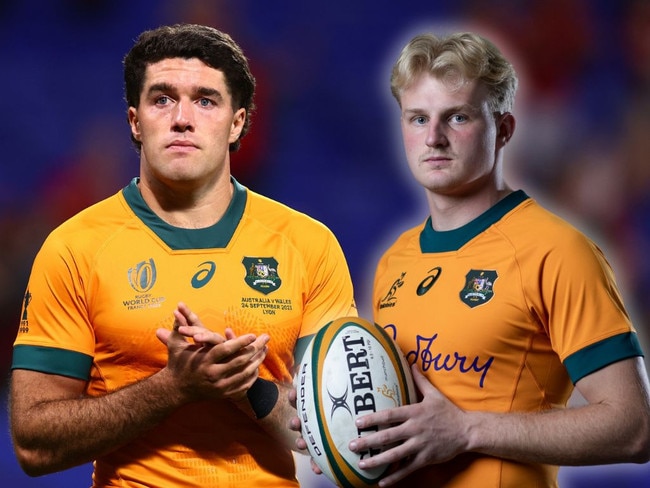
Rugby
Don't miss out on the headlines from Rugby. Followed categories will be added to My News.
BEN Donaldson has re-signed with Rugby Australia in a huge boost to the playmaking stocks leading into the 2027 World Cup.
With Noah Lolesio heading to Japan, Donaldson and Queensland’s Tom Lynagh are the likely candidates to take the Wallabies No.10 jersey this year and establish themselves as the preferred candidate for the World Cup in two years.
Lynagh is signed until the end of 2026, so it was imperative the Wallabies had at least one playmaker contracted until the end of the World Cup, and that is now confirmed after Donaldson’s deal with Western Force and RA.
His re-signing comes alongside Force teammate Carlo Tizzano, who has also put pen to paper on a deal until the end of 2027, as he competes with Fraser McReight for the Wallabies No.7 jersey.
But while openside has always been a strength of the Wallabies, five-eighth has been a problematic position.

Had Donaldson also taken an overseas deal like Lolesio, it would have left the Wallabies extremely vulnerable before a home World Cup.
Talking of Aussie five-eighths, James O’Connor continues to push his claims for a Wallabies recall with solid performances for the Crusaders.
Surprisingly, no Australian team has offered O’Connor a deal for next year. He will either stay on at the Crusaders or explore options in Europe and Japan.
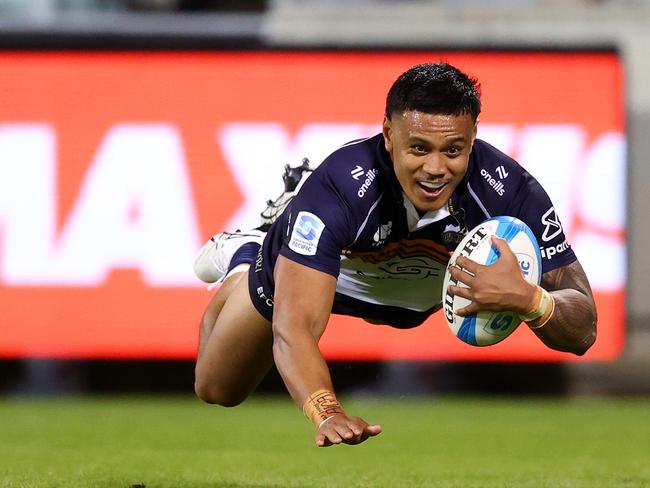
Lolesio’s departure at the Brumbies has led the franchise to inquire about Waratahs playmaker Tane Edmed, who has had a mixed season for NSW and only just broken back into the starting team.
It seems Edmed will hold off on a deal until the end of the season. The Tahs will need to make a decision on whether they want to retain the one-Test Wallaby, or trust in Lawson Creighton and Jack Bowen.
BELL TOLLS
Angus Bell has taken up a sabbatical clause in his contract and signed with Irish club Ulster for 2026, with the blessing of NSW coach Dan McKellar.
“It’s been on his radar for a number of months, we spoke about it when he first got back from the Wallaby environment,” McKellar said.
“He openly said he was looking at options and thought it was a good opportunity for him to go and play, a different style and a different environment, get away from the comforts of Sydney.”
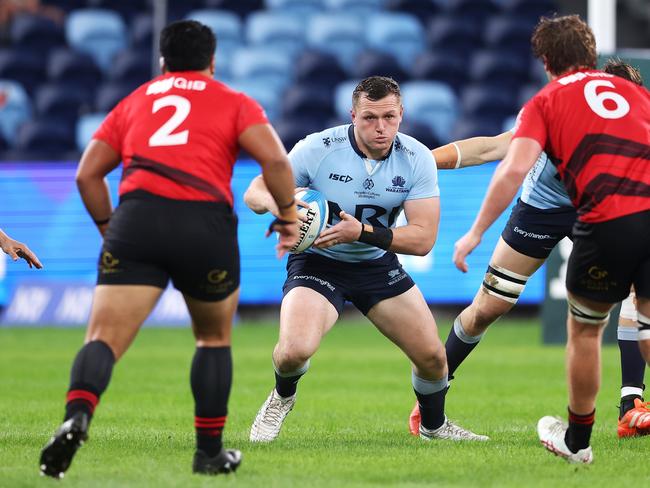
McKellar added: “Belly’s managed to come to an agreement with Ulster, which will be really good for him.
“Obviously, he’s been in this building and this group for a number of years, since he left straight out of school. So a rugby experience and a life experience will do him the world of good.
“I see the benefit, and we’re really comfortable with what we’ve got in behind Belly. Tom Lambert’s really come on this year. We’re working closely with Isaac Kailea in the background, who is getting better and better at set-piece, and he’s a very good rugby player.
“And we’ve got young Jack Barrett, a 20s prop from last year, and Adrian Brown.”
The future of Bell’s front-row partner Taniela Tupou is still unclear, with no formal offer from RA put forward yet.
While the Tahs will lose Bell, Langi Gleeson and Rob Leota in 2026, they’ll get Pete Samu and Matt Philip from overseas to bolster their pack.
SEVENS
India’s rugby version of cricket’s IPL will kick off on June 15 after the Indian-Pakistan conflict forced a delay.
The IPL was pushed back by three weeks, so the Rugby Premier League (RPL) will follow that.
Featuring three Aussie sevens stars who were bought at the auction, and star coach Tim Walsh leading one of the franchises, the RPL is a six-team tournament aimed at creating a similar buzz to the Twenty20 IPL tournament that has become one of the most lucrative leagues in sport.
Walsh will coach Mumbai Dreamers, who in the auction signed Aussie players Henry Hutchison and James Turner, while Maurice Longbottom was taken by Kalinga Black Tigers, who will be coached by USA’s Mike Friday.
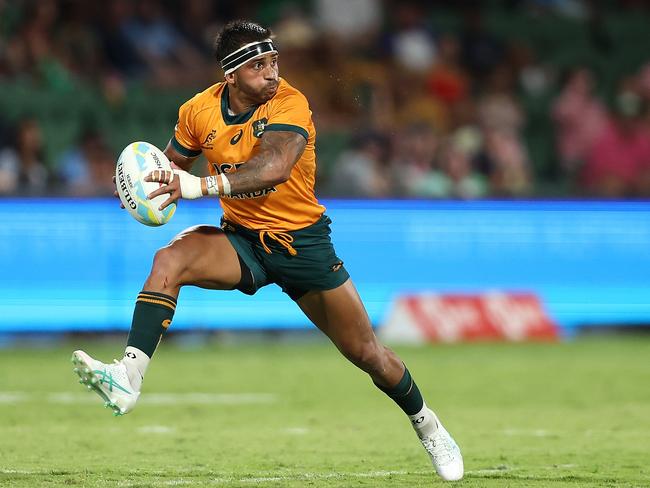
Interestingly, Friday has been a vocal critic of World Rugby cutting the World Sevens Series to eight teams, recently posting on social media: “World Rugby 7s leadership needs to take responsibility for mess WR propaganda about losses WSS was making last year was result of them changing hosting models & forming own event company. This was a flawed business decision & no fault of the game, yet it has been blamed!!”
If the RPL is successful, it would give sevens players another avenue to earn money and give the game a new platform. But the rules are slightly different, with four four-minute quarters instead of two seven-minute halves.
Each privately-owned franchise is allowed five marquee players, five “bridging” players considered as second-tier, and a mandatory five Indians in each squad.
Other sevens stars playing in the RPL include Kiwis Scott Curry and Akuila Rokolisoa, Fijians Iowane Teba and Waisea Nacuqu, South Africa’s Rosko Specman, and American flyer Perry Baker.
Renowned Australian commentator Greg Clark will be calling the games on India’s Star Sports.
WARATAHS WOES
DAN McKellar says his Waratahs squad needs to be educated on the differences between “paid players and professional players”.
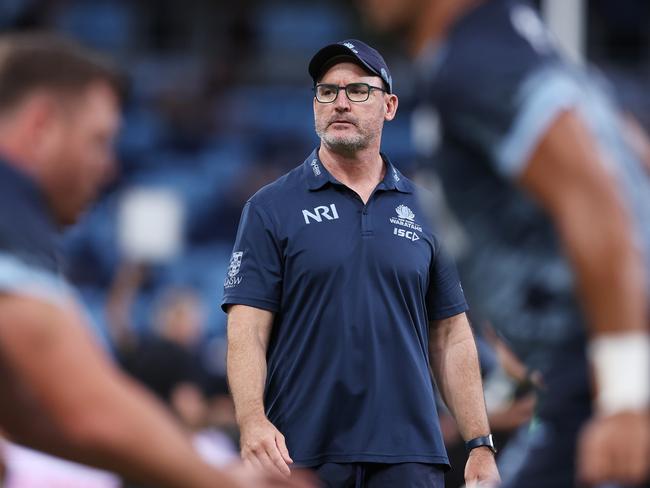
Addressing the issues of culture at Daceyville following a run of disappointing performances that have them on the verge of missing the finals again, NSW’s coach said: “It’s not just about training performance. It’s not just about training performance. It’s about how you get about your recovery, how you get about your sleep, your diet, all the little things.
“There’s paid rugby players and there’s professional rugby players and there’s a huge difference between the two. Our task here is to educate and help develop really good professional rugby players.
“Off the back of that, you get consistent performance from one day to the next, which allows you to play well and perform well on a Saturday night.”
WORLD CUP QUALIFIERS
Dubai has been picked as the unlikely host city of the final qualifying tournament for the last available spots at the 2027 Rugby World Cup being held in Australia, which has been expanded to feature 24 countries for the first time.
While 16 teams, including Australia, have already secured their places for the 2027 global tournament, the remaining eight slots will be decided over the rest of this year, in time for the draw, which will take place two years before the World Cup kicks off.
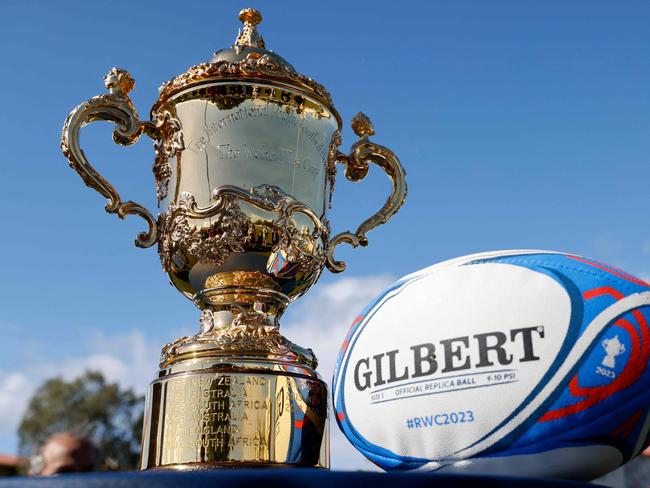
Six more teams will earn direct entry year through regional qualifying tournaments taking place in Africa, Asia, the Americas and the Pacific, while the last two spots will be decided through a four-team repechage event, scheduled for Dubai from November 8-18.
GRAND DESIGN
Wallaby and Western Force back Dylan Pietsch has already got a second career waiting in the wings when his rugby career eventually ends.
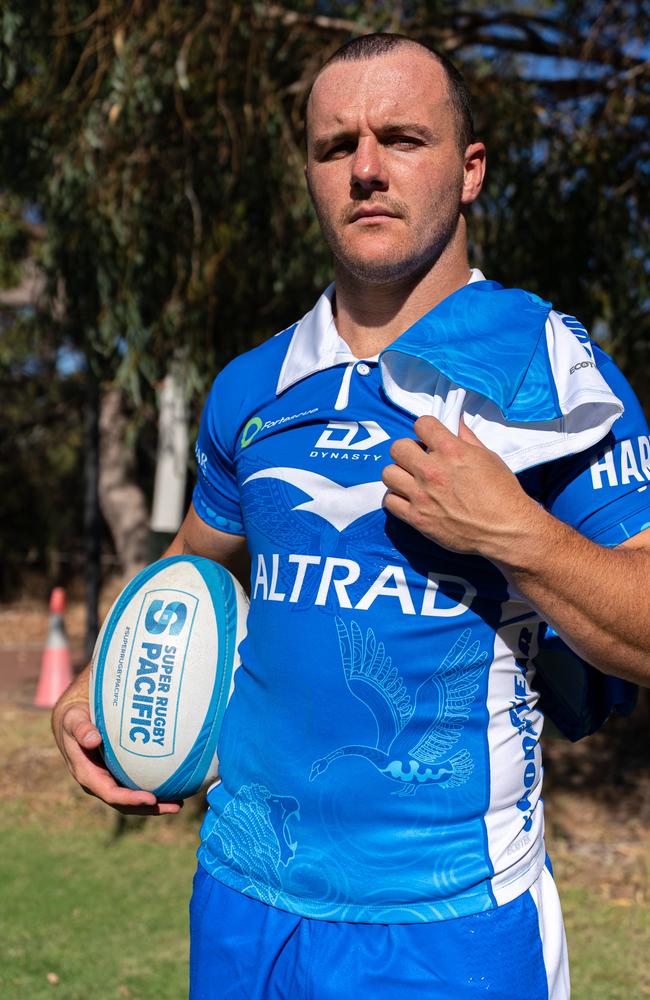
A talented artist, he’s just designed his third jersey for the upcoming British and Irish Lions tour.
The proud Wiradjuri man has designed a special edition commemorative jersey for the Force’s match against the Lions in Perth on June 28.
It features the club’s Maali (black swan) in attack pose above a lion. The design also includes feathers, circles and lines depicting the rivers of Western Australia.
The 15th Indigenous player to represent the Wallabies, Pietsch also helped design the jerseys for the Australian and New South Wales teams that will play the Lions.
“I’m really stoked to see my artwork on the main stage and can’t wait to wear it too,” he said.
SEEING RED
The southern hemisphere has had another rare win in the boardroom of World Rugby, now under the chairmanship of former Wallaby Brett Robinson.
Despite pushback from some of the European powers, the World Rugby Council has expanded the trial of 20-minute red cards globally after it was proposed and put in to experimental use in the southern hemisphere.
The decision to trial the 20-minute rec card rule is one step away from implementing it as a permanent law, with a final decision expected in 2026.
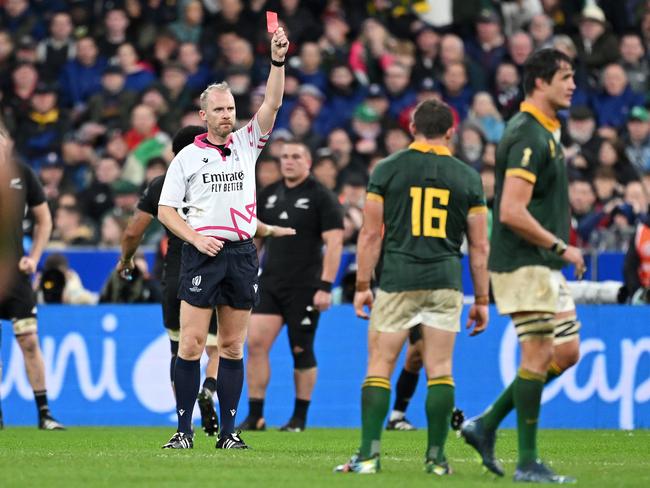
Under the provision, any player who is issued with a red card can be replaced after 20 minutes. The idea is that the offending player, rather than the entire team, bears the punishment because the team returns to full strength after the 20 minutes have elapsed. But the offending player cannot return to the field.
The push for the change gathered momentum after the New Zealand captain Sam Cane was red-carded in the 2023 World Cup final in Paris, which saw the All Blacks lose by a single point against South Africa.
“Our mission is to ensure rugby is a compelling sport to play and watch. The 20-minute red card preserves the fairness and drama of elite competition by punishing the individual, not the entire team or the spectacle,” Robinson said.
“Player welfare is non-negotiable. We monitor data around head injuries, tackle height, and concussion rigorously – and transparently. If evidence ever indicated this trial posed greater risk, we would end it immediately.”
More Coverage
Originally published as Ben Donaldson re-signs with Rugby Australia in key move for World Cup playmakers




